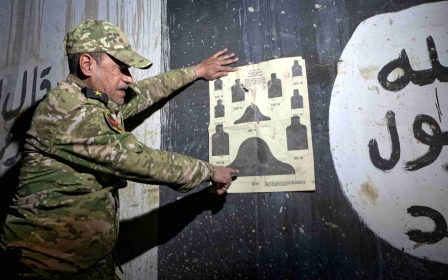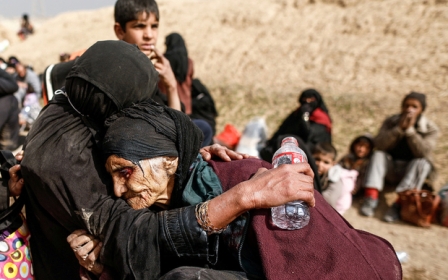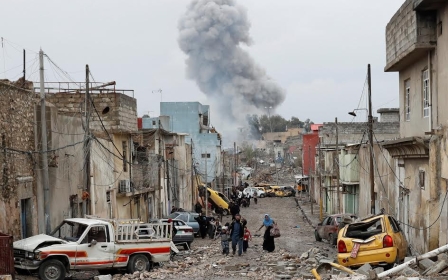Iraqi army nears Mosul mosque where IS declared caliphate
Elite Iraqi security forces dislodged Islamic State militants from the main government buildings in Mosul on Tuesday, their last major city stronghold in Iraq, an Iraqi spokesman said.
Mosul's main museum, which was damaged and looted by the militants, was also taken, Lieutenant Colonel Abdel Amir al-Mohammadawi, a spokesman for the elite interior ministry Rapid Response units told Reuters.
A special Rapid Response team stormed the Nineveh governorate building and the surrounding government complex in an overnight raid that lasted about an hour, he said.
"They killed tens from Daesh," he said, referring to the Islamic State group by one of its Arabic acronyms.
Seizing the government complex would help Iraqi forces attack the militants in the nearby old city centre and mark a symbolic step towards restoring state authority over Mosul, even though the buildings are destroyed and not being used by IS.
The battle for Mosul, which started on 17 October, will now enter a more complicated phase in the densely populated old city where, the Iraqi military believes, several thousand militants are among the remaining civilian population.
It was from the grand al-Nuri Mosque in the old city that IS leader Abu Bakr al-Baghdadi declared in 2014 a "caliphate" spanning parts of Iraq and neighbouring Syria.
The old city lies on the western bank of the Tigris river that cuts Mosul in two halves. About 750,000 people were estimated by aid organisations to live in west Mosul when the offensive started on this side of the city on 19 February.
The Iraqi forces took the eastern half of the city in January, after 100 days of fighting.
A US-led coalition is providing key air and ground support to the offensive in Iraq's second-largest city
New MEE newsletter: Jerusalem Dispatch
Sign up to get the latest insights and analysis on Israel-Palestine, alongside Turkey Unpacked and other MEE newsletters
Middle East Eye delivers independent and unrivalled coverage and analysis of the Middle East, North Africa and beyond. To learn more about republishing this content and the associated fees, please fill out this form. More about MEE can be found here.





